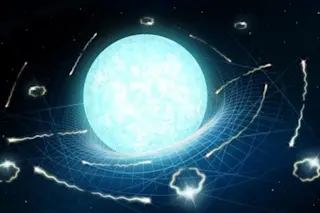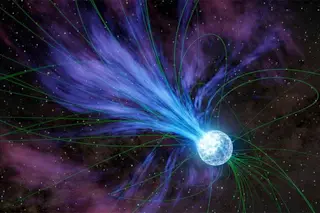Trying to assess the importance of particular scientific papers has long been a tricky task. The current system relies on counting the number of times a paper is cited by others to determine how large an effect it has had on subsequent research, but this number can be misleading, a new study notes. Simply
counting citations favors disciplines such as biology, where papers tend to be cited more, over fields such as mathematics, where citations are less frequent. In addition, a citation from a relatively marginal paper counts just the same as a citation from a leading researcher publishing in a marquee journal [Scientific American].
To try to get around these problems, a pair of researchers decided on a different tactic: They took the algorithm that Google uses to determine how to rank the Web pages turned up in a search result, and used it to rank the importance of ...













